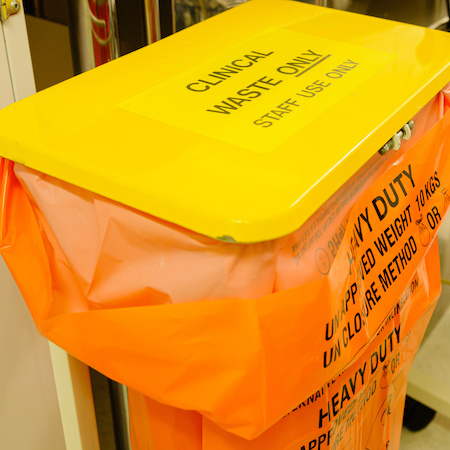This week is British Science Week, and the UK Health Security Agency (UKHSA) has highlighted the work it is doing to help hospitals to prevent the spread of infections.
Working with hospitals and academic partners, UKHSA is attempting to gain a better understanding of how infections spread in different environments, which is key to reducing their spread, preventing outbreaks and keeping the public safe.
Writing in a blog, Ginny Moore, an expert in applied environmental microbiology, explains how the built environment plays a critical role in the transmission of infection. To help them to study how microorganisms spread – in water, through the air or on surfaces – UKHSA has built a modular ward on its Porton Down bespoke research facility. It includes single and multiple-bedded rooms, a negative pressure isolation suite and ancillary spaces, such as dirty utility room, laundry, kitchen and office space. The facility also has dedicated heating, ventilation and air conditioning systems, as well as realistic water and drainage systems and the typical surfaces, fixtures, fittings and furnishings that would be found in a real ward.
“Creating the most life-like hospital ward possible ensures that we can better understand how microorganisms can live and spread in this environment,” says Ginny.
The research facility is enabling the study to examine:
• How hospitals can best deal with the transmission of antimicrobial resistant bacteria
• Improve understanding of how microorganisms spread in the air -including through clinical activities and procedures that generate aerosols
• Running water and the bacteria that live in taps, sinks and showers.
• How readily bacteria are transferred from surfaces to hands
• How the design of surfaces might make them easier to clean, and the effectiveness of disinfectants used to clean them.
“Our ambition is to help ‘design out’ healthcare-associated infections by understanding everything we can about strategies to prevent them in the indoor ward environment: this will both protect people’s health and address the substantial economic costs associated with these infections,” Ginny writes.
The modular ward is a good example of how UKHSA’s science is focused on real-world practical problems.











